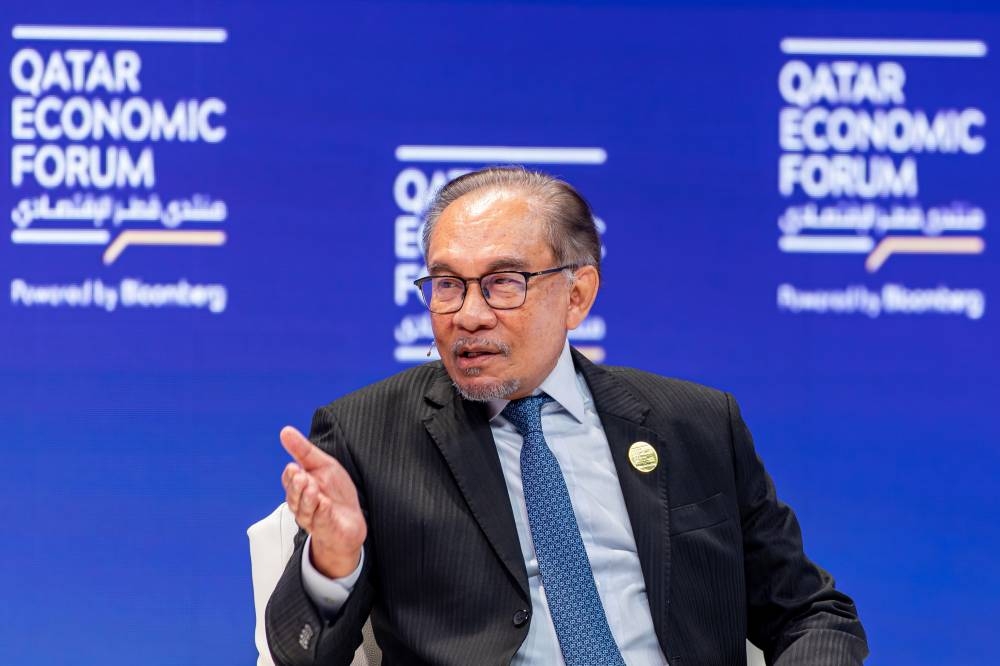
Anwar Ibrahim, Malaysia's Prime Minister, at the Qatar Economic Forum (QEF) in Doha on Tuesday.
Malaysian Prime Minister Anwar Ibrahim signalled that he sees no urgency in reducing fuel subsidies, a move that according to him would strain consumers and spur inflation — even though it’s a reform closely watched by investors.
“I concede that things need to be done, but it needs to be done judiciously,” he told Bloomberg Television’s Haslinda Amin at the Qatar Economic Forum on Tuesday. “Because in no way will I punish the masses.”
Malaysia’s fuel prices are among the cheapest in the world because of state support. When asked if the nation would cut such subsidies this year — as his government had earlier indicated — Anwar said it would happen “at the right time, when we are fully prepared.”
Anwar, who early in his term, had pledged to improve Malaysia’s fiscal position and reduce government debt from the current level of over 60% of gross domestic product, reaffirmed his commitment to cut wasteful spending and plug leakages while balancing the need to keep Malaysians satisfied.
The country’s economic growth cooled to 3.7% last year after posting the fastest expansion in two decades in 2022.
The government stands to save 5bn ringgit ($1bn) annually after reducing support to electricity and poultry consumers, Anwar said.
“Now, we have to consider diesel as there are too many leakages,” he said.
Malaysia currently absorbs much of the price of fuel and cooking oil for its population, a move that was estimated to cost 81bn ringgit last year. The government has sought to replace the broad subsidies with targeted assistance this year to help narrow the 2024 budget deficit to 4.3% of GDP, from 5% in 2023. When Anwar took power, the fiscal gap was at 5.6% and debt stood at 1.5tn ringgit, according to the premier.
Even as details on the long-awaited roll back of hefty subsidies remain scarce, the central bank anticipates that inflation, which had been below 2% since September, may average as much as 3.5% this year on the potential impact of the subsidy reforms.
“How do we then proceed to undertake this reform without punishing the poor?” Anwar said “That, to my mind, is very central.”
Analysts at Citigroup Inc expect a “meaningful rise” in the risk of an interest-rate hike later this year should Malaysia begin cutting fuel prices in July.
Malaysia’s central bank last adjusted borrowing costs a year ago, placing it at a record differential to the Federal Reserve. That’s weighed on the ringgit, which dipped to a 26-year-low in February.
